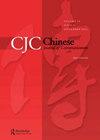Establishing legitimacy through the media and combating fake news on COVID-19: a case study of Taiwan
IF 1.9
2区 文学
Q2 COMMUNICATION
引用次数: 2
Abstract
Abstract Throughout the COVID-19 pandemic, the Taiwanese government has been able to retain legitimacy through prompt action and the use of multimedia to inform the public of prevention measures, quarantine rules, rationing of masks, and to build trust. First, the measures enacted by the Taiwanese government and its use of the media to address the impact of the pandemic were evaluated. Second, the study analyzed the communication strategies of the Taiwanese government to advise the public. The study also examined how an element of humor was also used to strengthen trust in the government and appeal to the citizens’ solidarity and responsibility in the information campaign against misinformation regarding COVID-19. Subsequently, fake news, misinformation, and disinformation regarding COVID-19 in Taiwan were examined in terms of source, themes, evidence, and format. Much of the disinformation was traced to Chinese propaganda. The study analyzed the role of fact-checking organizations, which played a crucial role in building trust and establishing social consensus between scientists and the general public.通过媒体确立合法性,打击新冠肺炎假新闻——以台湾为例
在2019冠状病毒病大流行期间,台湾政府通过迅速行动和利用多媒体向公众通报预防措施、隔离规则、口罩配给,并建立信任,保持了合法性。首先,对台湾政府采取的措施和利用媒体应对疫情影响的情况进行了评价。其次,分析台湾政府劝导民众的沟通策略。该研究还分析了在针对新冠肺炎错误信息的宣传运动中,如何利用幽默元素加强对政府的信任,呼吁国民的团结和责任。随后,从来源、主题、证据和格式等方面对台湾有关新冠肺炎的假新闻、错误信息和虚假信息进行了审查。很多虚假信息可以追溯到中国的宣传。该研究分析了事实核查机构的作用,它们在科学家和公众之间建立信任和建立社会共识方面发挥了至关重要的作用。
本文章由计算机程序翻译,如有差异,请以英文原文为准。
求助全文
约1分钟内获得全文
求助全文

 求助内容:
求助内容: 应助结果提醒方式:
应助结果提醒方式:


